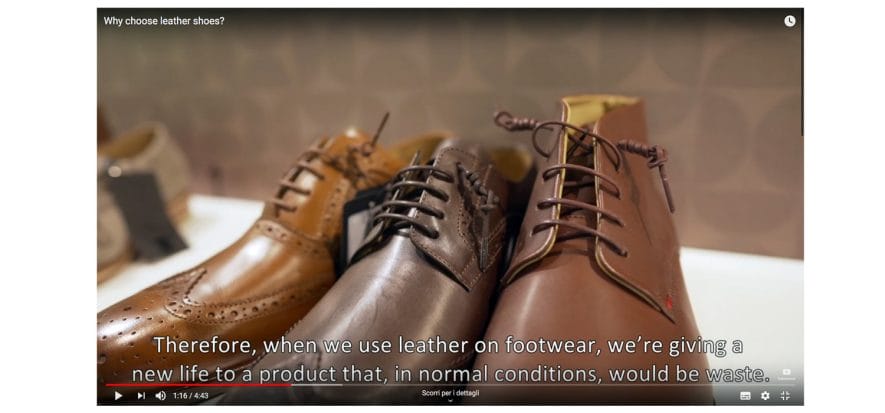They employ a traditional material, which has always been part of human uses. They have characteristics, in terms of quality, breathability, durability, which is difficult (if not impossible) to find in other products. Let us not forget, an example of circular economy and upcycling. In short, we should prefer leather shoes because they are sustainable and with high added value. As well as beautiful, ça va sans dire. This is the message that APICCAPS, the association of Portuguese footwear manufacturers, entrusts to a video.
Why we should prefer leather shoes
“Since we exist as human beings, we get dressed. I don’t think this will ever change – comments Marcelo Santos, of Softwaves shoe factory -. Leather is part of our heritage”. For years, the proposal of “vegan” models and materials has been advancing, a challenge to leather and a critical element for many companies in the supply chain. Alternative solutions are a market (and marketing) front which, as readers of La Conceria are well aware, often confuses the general public. Because the swarm of “green” inventions, between slogans and proclamations, clogs the debate and makes the circular nature of leather and the role of tanning upcylcer slip into the background (often for malicious mechanisms). “Leather is a by-product of the meat industry – Pedro Sampaio, Calzaturificio Mazoni has to explain – which becomes a new material. Otherwise it would be a waste to be destroyed”.
A matter of quality
Paula Melo, of Rolando Melo brand, recognises that leather remains the optimal material for quality uppers, because it has unique characteristics that are difficult to imitate. The roots and identity in leather do not mean that Portuguese footwear does not pose the challenge of innovation. “We can engage in the recycling of plastic, of course – resumes Santos -, but we must take into account that ours is a large-volume industrial sector that must consider the efficiency of the product”.
Read also:
- Leather and life expectancy: a video by Dani highlights the connection
- The video that disproves all fake news over tanning, animals and environment
- Don’t call it leather if it’s plastic: Argentina’s tanning segment makes its move










